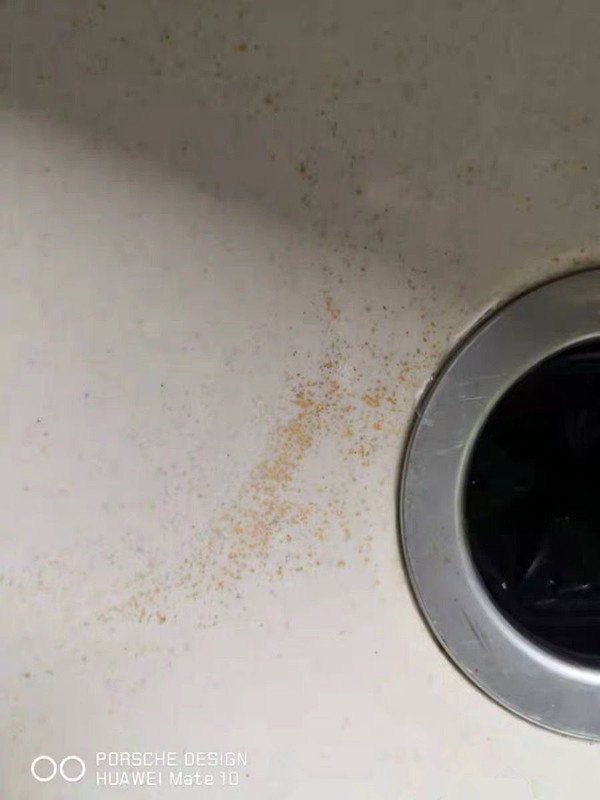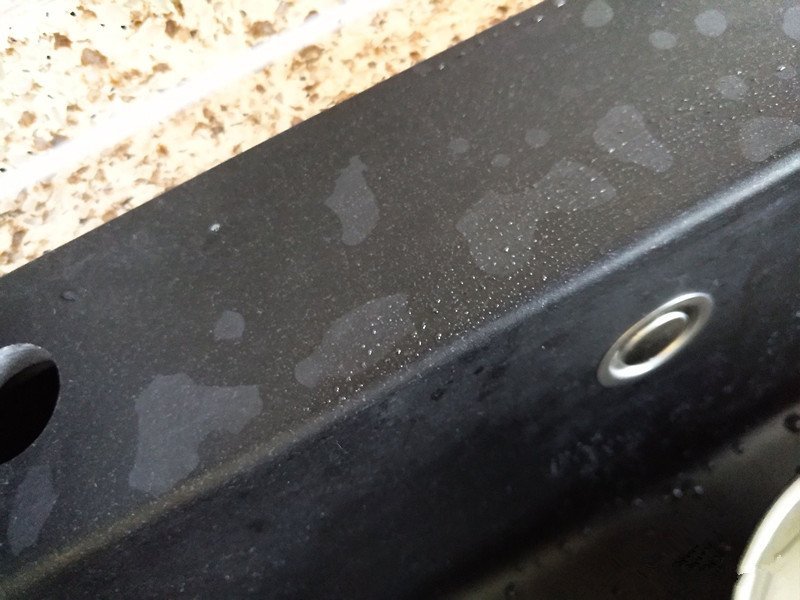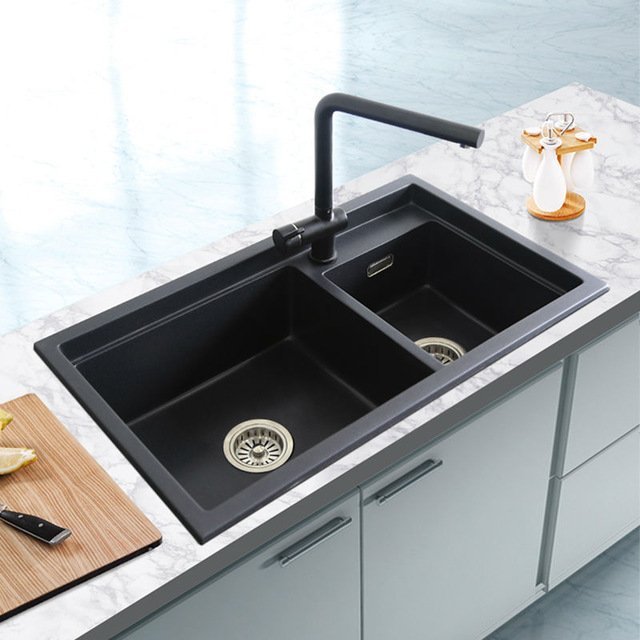Many homeowners choose to use granite composite sinks in their homes. Composite sinks are attractive, versatile, durable, and long-lasting. They come in a range of colors to suit any kitchen design and a broad range of sizes and configurations.
But many people find it difficult to clean a granite composite sink because they don’t get the right tools and the correct method. Before deep cleaning a granite sink, we need to know its material and the possible problems when cleaning the sink.
Understanding Granite Sink Material
Composites sink an artificial material that is an engineered blend of crushed quartz, stone dust, and acrylic resins. It is made under high pressure, making them hygienic, nonporous, and resistant to heat, chips.
The resins that help hold the crushed stone particles together help fill in any micro-pores that would typically be present either in the stone itself or between the various pieces. That resin is very tough, durable, and nonporous, which is what makes a composite sink so long-lasting and low maintenance.
While a natural stone sink without resins would be a lot of work to keep clean and in good shape, a composite sink is much easier to care for. The resins may only make up 20% of the sink, but they’re what you interact with when you use the sink, and they’re what will help make the sink easy to clean.

Possible Granite Sink Problems
Food Stain Build-Up/Stubborn Stains
The best way to avoid stubborn stain build-ups is to clean your sink daily with mild soap. Food stains and stubborn stains generally come about after repetitive use of your sink on one side or area. Certain foods can cause more staining than others, such as beets or acidic fruits.

Hard Water Stains
These are common in areas with hard water instead of soft water. The repetitive use of your sink faucet may leave hard water stains since the stream generally comes out in the same spot. Use a water softener to avoid any problems.
Soap Scum And Mineral Deposit Build-Up
This issue can occur from leaving dish soap in the sink after use. Mineral deposit build-up is from the minerals that are found naturally in your water. These can both damage your granite sink, so you should remove them daily with a light scrubbing pad.
White Haze And Etching
This problem can occur if you use detergents that are too harsh for your sink’s surface. For example, if you invest in an expensive granite composite sink, you shouldn’t clean it with ammonia. Harsh liquids such as ammonia, acidic juices, and coffee can create etching on your sink.

How to Clean a Granite Composite Sink
Prepare Your Cleaning Material
The prepared materials include white distilled vinegar, baking soda, mineral oil, and a cloth to clean your granite composite sink. The vinegar and baking soda reaction will create a foaming agent that will clean the grime off of the sink. Keep in mind that you should not leave the baking soda on too long, or you could damage the granite. We will use the mineral oil at the end to restore the sink’s shine.
Clean and Empty the Sink
Next, you should thoroughly pre-clean your sink. Remove all of the food scraps and other debris. We recommend filling the sink up with hot water and flushing it out so that it’s wet throughout. Clean the interior of the sink with mild dish soap and a soft cloth to remove food particles. Remember to dry out the sink with a cloth.

Apply the Cleaning Agents
Next, you should sprinkle the baking soda powder throughout the sink if you’re doing a complete clean. If you want to target a specific stain, then put a thick layer of baking soda in that area. Pour a small amount of white vinegar over the baking soda until the mixture begins to fizz. Please do not leave this mixture for too long since it is mildly abrasive. Use a soft cloth or soft-bristle brush to clean the sink and problem areas. Rinse out the entire sink with warm water and dry with a cloth. Use a paper towel to apply a thin layer of mineral oil throughout the sink.
Tips In Keeping Granite Sinks Clean
You may not always need to do a deep clean on your kitchen sink. The first step in maintaining a granite composite sink is to wash it with a sponge and soapy water after each use. It would be best if you remembered to dry it after cleaning so that limescale and hard water will not build up.
We recommend using a mixture of baking soda and white vinegar to deep clean your granite sink. You should always avoid highly harsh chemicals or abrasives such as ammonia and steel wool.
Keep in mind that granite composite sinks can be damaged by extreme heat and aluminum cookware. Aluminum cookware can scratch the surface of the stone.

Conclusion
Composite sinks are very low maintenance and extremely durable. Based on the above information, you now know how to clean a granite composite sink. As illustrated, the process is easy.
Though these sinks come sturdy to withstand various modern life stresses, they may get damaged or look dull if not cleaned or maintained well. It is therefore recommended to clean your granite composite sink daily.
If you want to find a reliable supplier of granite composite sinks, Chica Dragon is a good choice. They researched the science behind granite composite sinks in great detail. Afterward, they applied this research to make top-quality kitchen sinks.


Great to read. Our sink is starting to turn cloudy on the bottom. Being black makes it worse. We only use basic detergent and rinse and dry after each use
Any suggestions